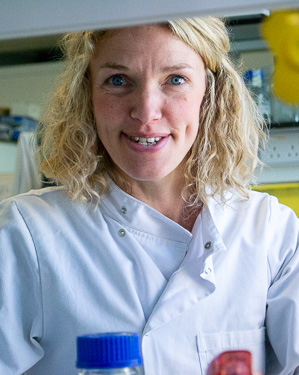Areas of focus
How do microbes evolve and interact within their niche?
We study microbes, as well as the impact of microbes and their metabolites on the environment, organismal health and cellular function. Our diverse projects span from understanding Archaea and protists; to the evolution of virus genomes; transmission of and methods to limit spread of zoonoses within the environment; how microbes and their metabolites stimulate renewal and repair of tissues and mediate evasion, activation and resolution of the immune system.
We investigate how microbes, pathogens, damage associated molecular patterns and external stimuli (including UV & snakebite venom toxins) interact with epithelial cells and how these cells then trigger an organism to produce protective immunity and influence longevity. We are interested in understanding how such cascades are regulated during injury and across the life course.
How does cross-talk between body systems regulate health and how is this altered by disease?
To better understand the interplay within and between body systems during homeostasis and disease we utilise our in-depth knowledge of microbiota and the immune system to inform studies of the nervous, endocrine and bio-energetic systems. With these studies we seek to understand how immune responses influence neurological & endocrine function and vice versa. We utilise in vivo models of infection, inflammation and disease focusing on tissue localised and systemic effects, as well as in vitro studies on cells and whole organisms including C. elegans to dissect mechanistic interactions at the molecular and cellular level.
Understanding the rules of life via molecular and biochemical Parasitology
We use a combination of cell biology, genetics and proteomics to explore the fundamental biology of parasitic protozoa, with a particular focus on the on the post-transcriptional and post-translational regulation of gene expression and protein function in unicellular eukaryotes. We study the African trypanosomes Trypanosoma brucei and Trypanosoma congolense which are eukaryotic parasites affecting humans, cattle and game animals that produce a substantial health and economic burden in endemic areas in sub-Saharan Africa, as well as the related parasites Leishmania and Trypanosoma cruzi which cause a substantial burden to human health. We utilise in vitro and in vivo techniques to uncover similarities and differences between host and parasite biology that leads to improved understanding of the fundamental biology of each, and produce outcomes with the potential to be exploited to develop therapeutic treatments. The divergent evolutionary position of these parasites means our findings also inform the broader understanding of fundamental eukaryotic mechanisms.
For more specific information about research carried out by each member of the Microbes, Pathogens and Immunity research theme, please click on the individual profiles below.





































